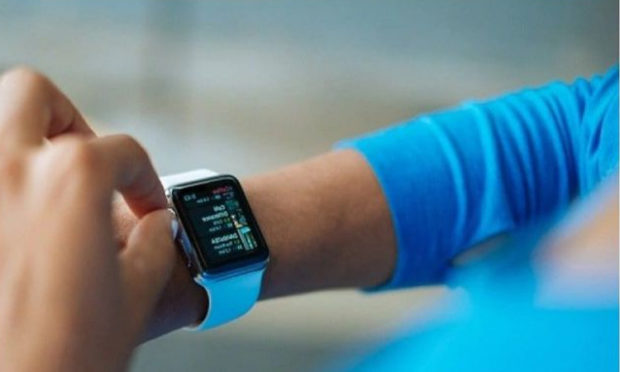
IIT Madras startup to launch smart wrist band for detecting COVID-19 symptoms
Team Udayavani, Jul 25, 2020, 1:36 PM IST

Chennai: A wearable wrist tracker to detect COVID-19 symptoms at an early stage will be available in the market next month with its developer, an IIT Madras incubated start-up, raising funding of Rs 22 crore for the purpose. “Muse wearables”, the start up incubated at IIT Madras by an alumni group along with an NIT Warangal alumnus, is planning to launch the trackers in 70 countries.
The wrist-based tracker has sensors for skin temperature, heart rate and SpO2 (blood oxygen saturation) which can continuously track these body vitals remotely to help in early diagnosis of COVID-19 symptoms.
The tracker will be Bluetooth-enabled and can be connected to the mobile phone via an app called the Muse Health App. The user vitals and activity data are stored in the phone as well as a remote server. Administrative access can also be provided for centralized monitoring of people in containment areas for COVID-19 symptoms.
The tracker can get notifications from the Arogya Setu app and alert the user when she enters a COVID containment zone.
Users can raise an Emergency Alert (SOS) in case of any difficulty and the alert is raised when body temperature is higher than the threshold. The app also alerts people when SpO2 levels are too low or when the user is entering into a COVID containment area.
“We are targeting two lakh product sales this year with plans to achieve 10 lakh product sales by 2022 across the world. The investors believe in our innovations and believe that we can create a huge difference in the consumer tech space and we have been able to generate a funding of Rs 22 crore,” KLN Sai Prasanth, an IIT Madras alumni.
Priced at around Rs 3500, the new wearable product will be available in the market for consumers across 70 countries by August. K Prathyusha, an NIT Warangal graduate, said, “Our main objective with this product is to facilitate identification of patients who have COVID pneumonia sooner so that they can be treated more effectively.”
“We have developed algorithms to estimate body temperature from skin and ambient temperature, heart rate and motion sensing.
“With continuous temperature and SpO2 monitoring, we will be able to detect silent hypoxia (an early symptom of coronavirus infection even in asymptomatic patients) at an early stage. This will also help the general public for proactive health monitoring along with fitness tracking and sleep tracking,” Prathyusha said.
Udayavani is now on Telegram. Click here to join our channel and stay updated with the latest news.
Top News

Related Articles More

Snatcher lands in police net in Delhi, AI tech helps reveal identity

AI Meets Health: The Rise of Smart Fitness Solutions

Power Up by Powering Down: 10 Energy-Saving Tips for Every Home

Multi-lingual AI chatbot to assist visitors during Maha Kumbh Mela 2025

ISRO carries out ‘well deck’ recovery trial of Gaganyaan
MUST WATCH
Latest Additions

Congress twisted facts, distorted my statement on Ambedkar: Amit Shah

Govt will not remove temples built on Waqf properties, CM Siddaramaiah tells Assembly

Not God, but Constitution that saves oppressed people: Karnataka Minister Mahadevappa

One dead, 66 rescued after ferry capsizes off Mumbai coast

Madikeri: Companies directed to pay Rs 28 lakhs to girl who lost her parents in gas leak incident
Thanks for visiting Udayavani
You seem to have an Ad Blocker on.
To continue reading, please turn it off or whitelist Udayavani.


















